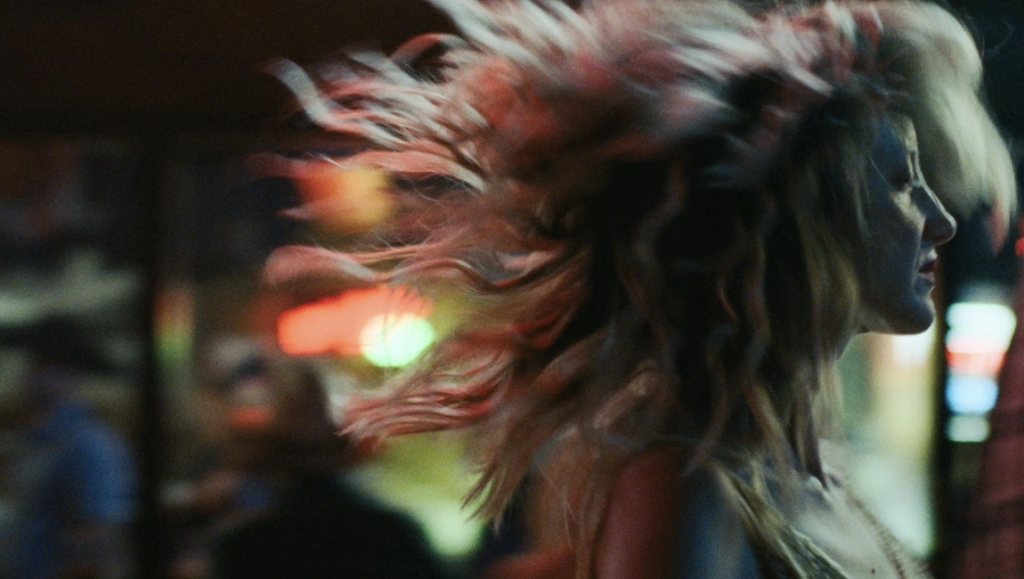It has been a mere two weeks since a bevy of the Hollywood elite, ranging from Cate Blanchett to Gwyneth Paltrow to Edward Norton, bombarded social media with praise for actress Andrea Riseborough’s performance in the little seen indie drama To Leslie. That this coincided with the submission date of the 2023 Oscar nomination ballots seemed more than a tad suspicious, as did the various copy-and-paste tweets that literally repeated the same phrase over and over: “A small film with a giant heart.” Kate Winslet even hosted an online Q&A regarding the film, in which she claimed that Riseborough delivered “The greatest female performance ever,” a statement so hyperbolic that one is cynically left to ponder if it was written by Riseborough’s PR team on the back of a check. Armchair prognosticators guffawed, but it was Riseborough herself who had the last laugh, landing an Academy Award nomination this past Tuesday morning as attendees could be heard gasping out loud. Yes, she did it, and now various online publications and curious viewers are scurrying to finally check out a movie that opened in a handful of theaters last October and made less than $30,000 total.
Anyone with even a passing knowledge of the Academy Awards knows that the nominations mean very little in the grand scheme of things, with worthy films and performances overlooked year after year in favor of whatever has captured the voters’ fancy and/or the cultural zeitgeist at that particular moment. Yet for a film like To Leslie, it means far more, as such publicity will likely fuel viewership that initially eluded it, a Cinderella story for the literal dozens upon dozens of no-budget indie flicks released every year that fall through the cracks like so much filmic dust. But one question remains: is Riseborough really that good? Far be it for this critic to call out Hollywood royalty like Winslet, but if this is indeed the greatest female performance she has ever seen, one wonders just how many movies she has actually watched in her life, with the over/under seemingly around 11.5.
To Leslie finds Riseborough playing the titular character, an alcoholic fuck-up and all-around bad mom who, as the movie opens, is being thrown out of her cheap motel room for failure to pay rent. Such roles are catnip for performers, as it allows them to access nearly every emotion on the spectrum, running the gamut from manic highs to depressive lows, usually within seconds of each other. There’s a reason why various thespians, from the likes of Meryl Streep to even Will Ferrell, have ventured down this actorly road, the type with “range” baked into its DNA. Riseborough has certainly proved her mettle over the years, delivering 110 percent in everything from little-seen passion projects (Nancy, Mandy) to big-budget genre fare (Oblivion, The Grudge) to — *gulp* — a feature film directed by Madonna (W.E.). And to her credit, that same level of commitment is on full display in To Leslie, with Riseborough taking what is essentially a stock character and infusing her with a recognizable humanity that seems wholly absent from the written page, a film as flat and safe as its lead protagonist is complex and thorny.
But there are ultimately few surprises to be found in this tale of personal redemption so rote that the biggest shock is that it wasn’t directed by Darren Aronofsky — instead, television director Michael Morris, who got his start directing episodes of the Sally Field-starring ABC drama Brothers & Sisters, takes the reins, which seems fairly apt given the melodrama that fuels the film. Still, Riseborough does manage to steady this ship whenever it feels in danger of tipping, refusing likability at every turn as her character ping-pongs from one caretaker to the next, finally realizing that the only person who can save her is… herself. Profound stuff. Oh, and there’s a kindly motel manager played by Marc Maron, delivering a turn so gentle and sweet — a balance to Riseborough, who he matches beat for beat — that it’s hard not to love him. (Where is his damn nomination, Academy?) Allison Janney also pops up as a former friend of Leslie’s, but is so atrocious in her limited screen time that she somehow makes Margo Martindale’s similar portrayal of enfant terrible white trash in Million Dollar Baby seem subdued in comparison.
The one novel approach the script takes, courtesy of screenwriter Ryan Binaco, is that it immediately reunites Leslie with her abandoned son, the now-grown James (Owen Teague), and promptly boots him from the proceedings minutes later, forcing Leslie to get her shit together virtually entirely on her own, and sparing audiences from yet another tired retread of The Wrestler. That’s not to say there isn’t more than a bit of wish fulfillment going on in To Leslie come film’s end, but honestly, anything even remotely innovative — no matter how small — is a welcome enough development in cinema’s current rinse-repeat landscape. To Leslie isn’t threatening to go down as some hidden masterpiece, and Riseborough’s performance is, ironically enough, the scenery-chewing kind for which Oscar nominations were invented, but as another entry in the ever-growing genre of misery porn cut through with a ray of hope, audiences could do a lot worse — as could the Academy.
Published as part of InRO Weekly — Volume 1, Issue 4.


Comments are closed.